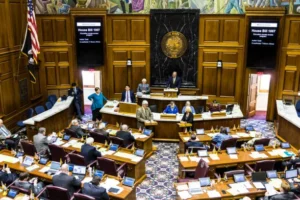A federal judge has mandated action to resolve Alaska’s SNAP delays due to chronic food assistance application processing backlogs. Judge Sharon Gleason of the U.S. District Court issued a preliminary injunction on Tuesday, mandating that the state submit monthly status updates beginning in February 2025.
These updates will describe the attempts to process Supplemental Nutrition Assistance Program (SNAP) applications within the 30-day nationally required period. The injunction follows a lawsuit filed two years ago by the Northern Justice Project, an Alaska civil rights firm.
The backlog peaked in 2023, leaving 15,000 Alaskans without timely food benefits. Although the state made improvements by mid-2024, it again fell behind. This happened after federal waivers on interviews required a processing timeframe, with average waits exceeding 60 days.
The Alaska Department of Health has blamed persistent staffing shortages and outdated systems for the delays. Deb Etheridge, Director of the Division of Public Assistance, highlighted modernization efforts. It included a $54 million overhaul of the state’s application system expected to launch in July 2025.
Additional measures, such as larger computer monitors, faster internet speeds, and the rollout of online SNAP application submission in late 2023, aim to improve processing times. However, Judge Gleason found these steps insufficient to ensure compliance with federal law. “While these efforts are commendable, there is at present no indication that these efforts will successfully bring (the Department of Health) into full compliance with the processing deadlines,” she stated.
The court order also follows an Anchorage Superior Court ruling, finding the state violated deadlines for cash assistance applications. Especially for the elderly and disabled Alaskans, programs managed by the same division. An attorney, James Davis, from the Northern Justice Project, lauded the court’s decision, saying the reporting requirement enforces accountability.
“Doing nothing for another three or four years while hundreds of families go hungry is just not an acceptable status quo,” stated Davis. State officials maintain that processing times have improved significantly since 2022 but did not confirm how they plan to meet the reporting requirements addressing Alaska’s SNAP delays.
This news article was originally published by Anchorage Daily News.










